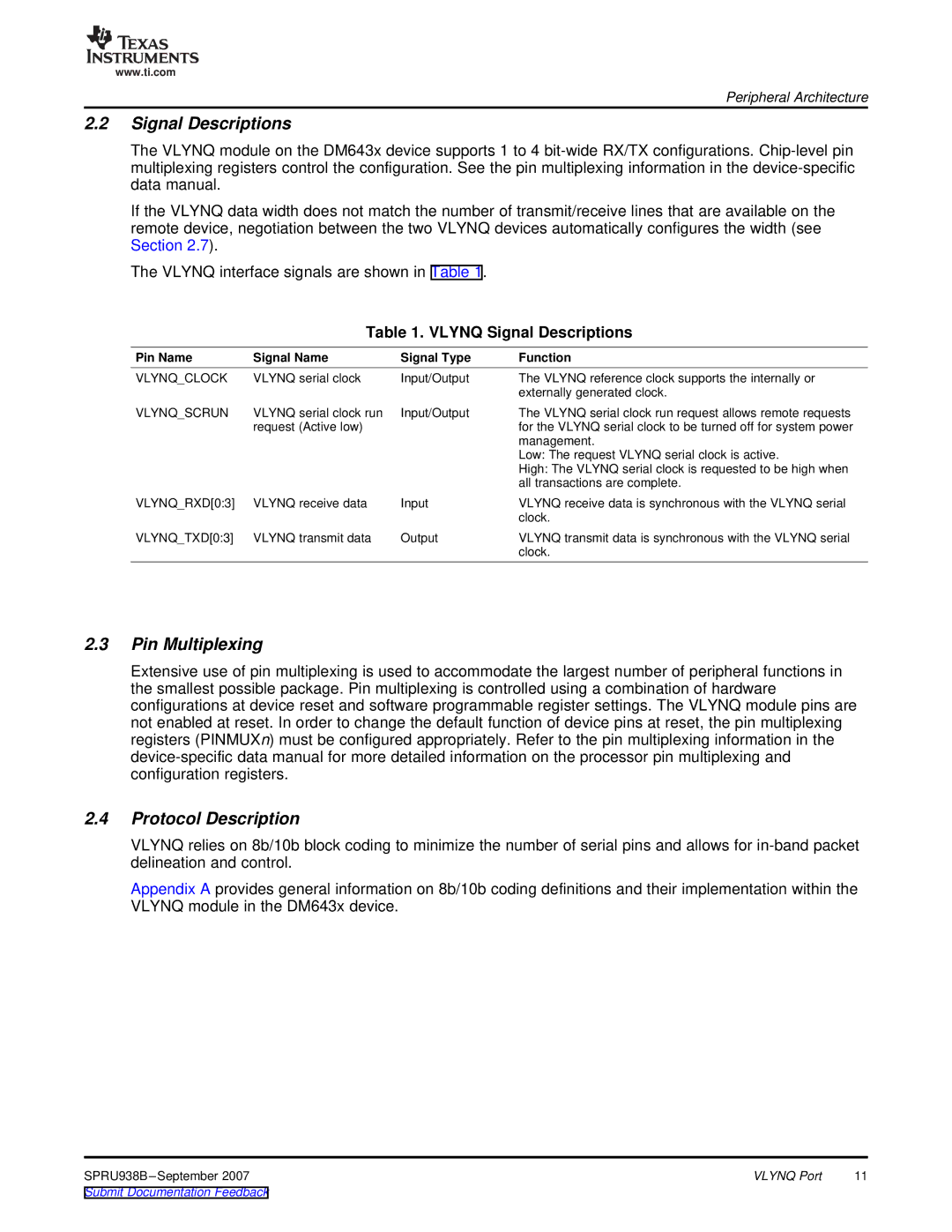
www.ti.com
Peripheral Architecture
2.2Signal Descriptions
The VLYNQ module on the DM643x device supports 1 to 4
If the VLYNQ data width does not match the number of transmit/receive lines that are available on the remote device, negotiation between the two VLYNQ devices automatically configures the width (see Section 2.7).
The VLYNQ interface signals are shown in Table 1.
Table 1. VLYNQ Signal Descriptions
Pin Name | Signal Name | Signal Type | Function |
VLYNQ_CLOCK | VLYNQ serial clock | Input/Output | The VLYNQ reference clock supports the internally or |
|
|
| externally generated clock. |
VLYNQ_SCRUN VLYNQ serial clock run Input/Output request (Active low)
The VLYNQ serial clock run request allows remote requests for the VLYNQ serial clock to be turned off for system power management.
Low: The request VLYNQ serial clock is active.
High: The VLYNQ serial clock is requested to be high when all transactions are complete.
VLYNQ_RXD[0:3] | VLYNQ receive data | Input | VLYNQ receive data is synchronous with the VLYNQ serial |
|
|
| clock. |
VLYNQ_TXD[0:3] | VLYNQ transmit data | Output | VLYNQ transmit data is synchronous with the VLYNQ serial |
|
|
| clock. |
2.3Pin Multiplexing
Extensive use of pin multiplexing is used to accommodate the largest number of peripheral functions in the smallest possible package. Pin multiplexing is controlled using a combination of hardware configurations at device reset and software programmable register settings. The VLYNQ module pins are not enabled at reset. In order to change the default function of device pins at reset, the pin multiplexing registers (PINMUXn) must be configured appropriately. Refer to the pin multiplexing information in the
2.4Protocol Description
VLYNQ relies on 8b/10b block coding to minimize the number of serial pins and allows for
Appendix A provides general information on 8b/10b coding definitions and their implementation within the VLYNQ module in the DM643x device.
SPRU938B | VLYNQ Port | 11 |
